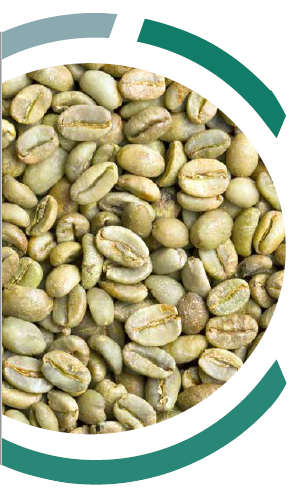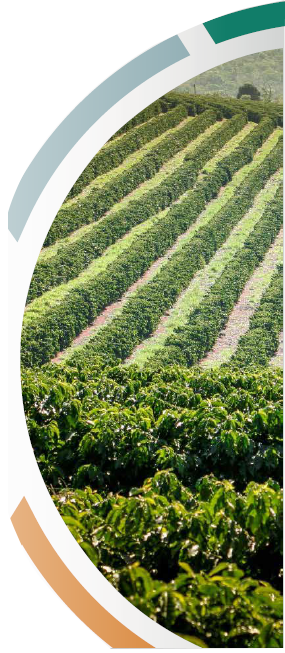 The global agenda is being driven by both the events that took place in 2020 and the expectations for 2021. The Covid19 pandemic has had impacts on the lives of people and the economy of countries, and the world seeks for solutions so that societies can go back to a relative normal as soon as possible.
The global agenda is being driven by both the events that took place in 2020 and the expectations for 2021. The Covid19 pandemic has had impacts on the lives of people and the economy of countries, and the world seeks for solutions so that societies can go back to a relative normal as soon as possible.
However, despite all negative impacts brought by the pandemic, the agribusiness sustainability enabled the country to show advances and break records in 2020. For the second time in history, Brazilian agribusiness exports in the year exceeded USD 100 billion.
The organization, competitiveness and efficiency of the coffee export sector were paramount to the success of the entire production chain including, for example, the Price Paid to Growers index (IPEP in Portuguese), which measures the percentage of FOB export price effectively transferred to growers.
Conilon IPEP went up to 89.0% in Q320, exactly the same as the average IPEP-C for 2019. Arabica IPEP went down to 72.7% in Q320. It is important to note that Q3 IPEP shows that a high percentage of FOB is transferred to domestic prices.
Besides, the export sector competitiveness and organization can be seen in its wide use of futures market tools, such as hedging for future contracts and barter operations for the purchase of agricultural inputs and machinery.

Supported by the export trade and market information, growers are able to enjoy windows of opportunity to optimize sales revenue, which is directly related to Brazilian coffee agribusiness sustainability.
In addition to hitting record harvest volumes for 2020, Brazilian coffee shows significant quality and is produced in compliance with strict environmental and social laws that see to the health and safety of workers and consumers in general. The recognition of Brazilian coffee high quality can be observed in record volumes verified in Commodity Exchanges, such as the historical records of ICE Futures.
As for global consumption, there is a balance between demand and supply, even with Brazil’s export records and the impact of the pandemic on business. According to market information, retail demand for home consumption has offset the retraction caused by the closing of bars, restaurants and coffee shops.
According to the ICO – International Coffee Organization – world coffee consumption for the 2019-2020 coffee year is estimated at 167.59 million bags, a slight reduction of 0.9% compared to 2018-2019.
The year 2020 ended with changes in global geopolitics. One of the significant changes in the Biden’s administration with regard to international relations will possibly be the United States resuming the leadership it has always enjoyed in the multilateral coordination of the world, focused on strategic diplomatic connections to ensure greater political, commercial, financial stability, as well as peace, development and others, especially in the aftermath of World War II.
The resumption of the Paris Agreement, placing the issue of the climate anomaly at the center of its foreign, trade and national security policy, will certainly include strong pressure for the Brazilian Government to demonstrate its commitment to reducing illegal deforestation in the country.
The United States played an important role in the creation of several international organizations whose objective is to promote peace and human rights, prevent new wars, solve conflicts (United Nations), and foster finance and development (International Monetary Fund), trade (World Trade Organization), and public health (World Health Organization) among others.
In this context, attention and efforts are focused on the year 2021. On the one hand, a successful availability of vaccines for Covid19 is expected, along with economic recovery and a solid new cycle of agricultural, energy and metal commodities, which is positive for Brazil. On the other hand, concerns are focused on high unemployment rates, the large fiscal deficits observed in countries and logistical limitations to a broader population immunization. In the case of coffee, it is not yet known how consumption outside home – an important component for the coffee market – is to recover.
The National Supply Company (CONAB) will soon release the first official survey for the 2021 coffee year. Due to the negative biennial yield effect and the drought observed in some regions of Arabica coffee, a reduction in the volumes produced is expected. On the other hand, expectations for Conilon are positive for the country.

As rainfall volumes resume and become more regular, in addition to the previous record harvest, Brazil will certainly continue supplying quality coffee to the world, fulfilling its commitments of quality and sustainability.
Thus, CECAFÉ – the Brazilian Coffee Exporters Council, as representative of the coffee export sector of the country, will continue to follow closely the world political scenario and the changes in regulations in the European Union, USA, and others.
At CECAFÉ General Meeting held in December 2020, the Board of Directors approved the Council priorities to be ready for all challenges based on the new Strategic Plan for the 2021-2024 period.

The Council’s strategic objectives include improving institutional representation domestically and internationally; promoting greater dynamics of Technical Committees; investing in communication and the digital presence of Cafés do Brasil in the world; strengthening actions to promote the image of quality and sustainability among embassies, roasters and local partners; strengthening Social Responsibility and Sustainability Programs; and modernizing reports and products offered to members; among others.
CECAFÉ also showed its support during the evaluation of the performance of programs such as the Waste Monitoring, Informed Producer and Planning for New Themes of 2021, including initiatives of Members for the Correct and Safe Use of Pesticides and the Social Area, with the coordination of the Global Coffee Platform, CECAFÉ and INPACTO, as well as the Family Succession project, which is under planning.
2020 was a year of hard work, accomplishments and support from the export sector. Now, 2021 is approaching as a year full of opportunities and challenges for Brazil.
With the support of all partners, institutions, exporter members and its Board of Directors, CECAFÉ will continue to pursue its mission: to strengthen Brazil’s absolute leadership in the global coffee market, expanding the precepts of sustainability and social responsibility.
Marcos Matos – CECAFÉ CEO
Lilian Vendrametto – CECAFÉ Sustainability Manager


Leave A Comment